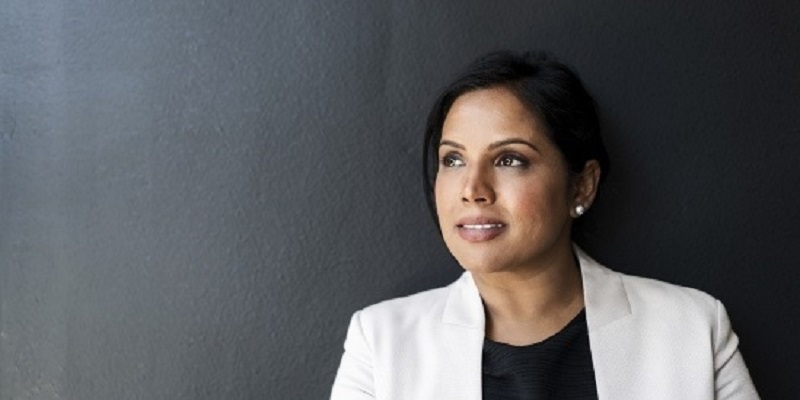Three questions business leaders must ask themselves going into the new decade

Alistair Cox, CEO of recruiting experts Hays, has identified three important questions business leaders should be asking themselves to prepare their organisations and workforces for the new decade ahead.
The past ten years saw some dramatic changes to the world of work, including technological transformation and new ways of working. Equally big changes to the world of work can be expected for the new decade and it is essential business leaders and their organisations are ready.
Alistair comments; “As we prepare to lead our organisations into the 2020’s, it’s time for us to question what value we as leaders, and our organisations will contribute to the world over the next 10 years, and, ultimately, how we can ensure both will be thriving in 2030 - no matter what is thrown their way.”
Alistair says it is important for leaders to ask all the right questions, enabling them to disrupt the status quo, understand the threats and opportunities in their market and to help ensure their success over the next ten years.
1. Does your organisation have a clear purpose, and are you really living it?
It is becoming increasingly important for businesses to serve all stakeholders, including customers, employees, suppliers, communities and the planet, not just shareholders. Organisations need to appreciate that both profit and purpose are mutually achievable, and that a business’s purpose must serve all stakeholders.
Alistair advises; “It needs to feel authentic in the eyes of all your stakeholders. They need to feel connected to it. They need to feel inspired by it. To them, it needs to be more than black and white words on a screen. Only then, will it be truly embedded into your DNA and drive long-term value in the decades to come.”
2. How prepared are you to attract (and retain) the next generation of workers?
The generational makeup of the workforce is changing each year and while there has been a strong focus on how businesses can attract Millennials, in comparison Gen Z has been overlooked. While the oldest Millennials turned 38 in 2019, the oldest Gen Z turned 23 and will soon make up a staggering 30% of the workforce.
Alistair says there are questions leaders must ask themselves in order to attract Gen Z workers; “How well do you know this new generation of workers? Will you need to adapt your traditional way of doing things in order to position your business as an employer of choice in their eyes? How will you keep hold of them once you’ve attracted them?”
3. How will technology disrupt your people and their jobs?
Alistair says; “As leaders, one of the most important questions we should be asking ourselves here is, how will technology and disruption impact our people and their jobs? And it’s not a question of if it will impact jobs, it’s a question of how it will impact them.”
Alistair believes disruption to jobs will largely be positive, while some roles will be lost in the coming years, many new roles will be created in their place. Business leaders should look to identify which roles are at risk of automation and help their workforces through those changes and ensure they are prepared.
Alistair closes by saying; “If the last decade has taught us anything, it’s that we can’t predict the future. No one can. But what we can do is try to ask ourselves the most pressing questions, at the most pressing times - even if we don’t know all the answers right away. Doing so will help us reflect and recalibrate, and ultimately put us in the best position possible to lead our businesses into a new transformative age.”
This content was originally published as a LinkedIn Influencer blog.
- Ends –
About Hays
Hays plc (the "Group") is a leading global professional recruiting group. The Group is the expert at recruiting qualified, professional and skilled people worldwide, being the market leader in the UK and Asia Pacific and one of the market leaders in Continental Europe and Latin America. The Group operates across the private and public sectors, dealing in permanent positions, contract roles and temporary assignments. As at 30 June 2019 the Group employed 11,500 staff operating from 265 offices in 33 countries across 20 specialisms. For the year ended 30 June 2019:
– the Group reported net fees of £1,129.7 billion and operating profit (pre-exceptional items) of £248.8 million;
– the Group placed around 81,000 candidates into permanent jobs and around 254,000 people into temporary assignments;
– 18% of Group net fees were generated in Australia & New Zealand, 27% in Germany, 23% in United Kingdom & Ireland and 32% in Rest of World (RoW);
– the temporary placement business represented 57% of net fees and the permanent placement business represented 43% of net fees;
– Hays operates in the following countries: Australia, Austria, Belgium, Brazil, Canada, China, Colombia, Chile, the Czech Republic, Denmark, France, Germany, Hungary, India, Ireland, Italy, Japan, Luxembourg, Malaysia, Mexico, the Netherlands, New Zealand, Poland, Portugal, Romania, Russia, Singapore, Spain, Sweden, Switzerland, UAE, the UK and the USA
